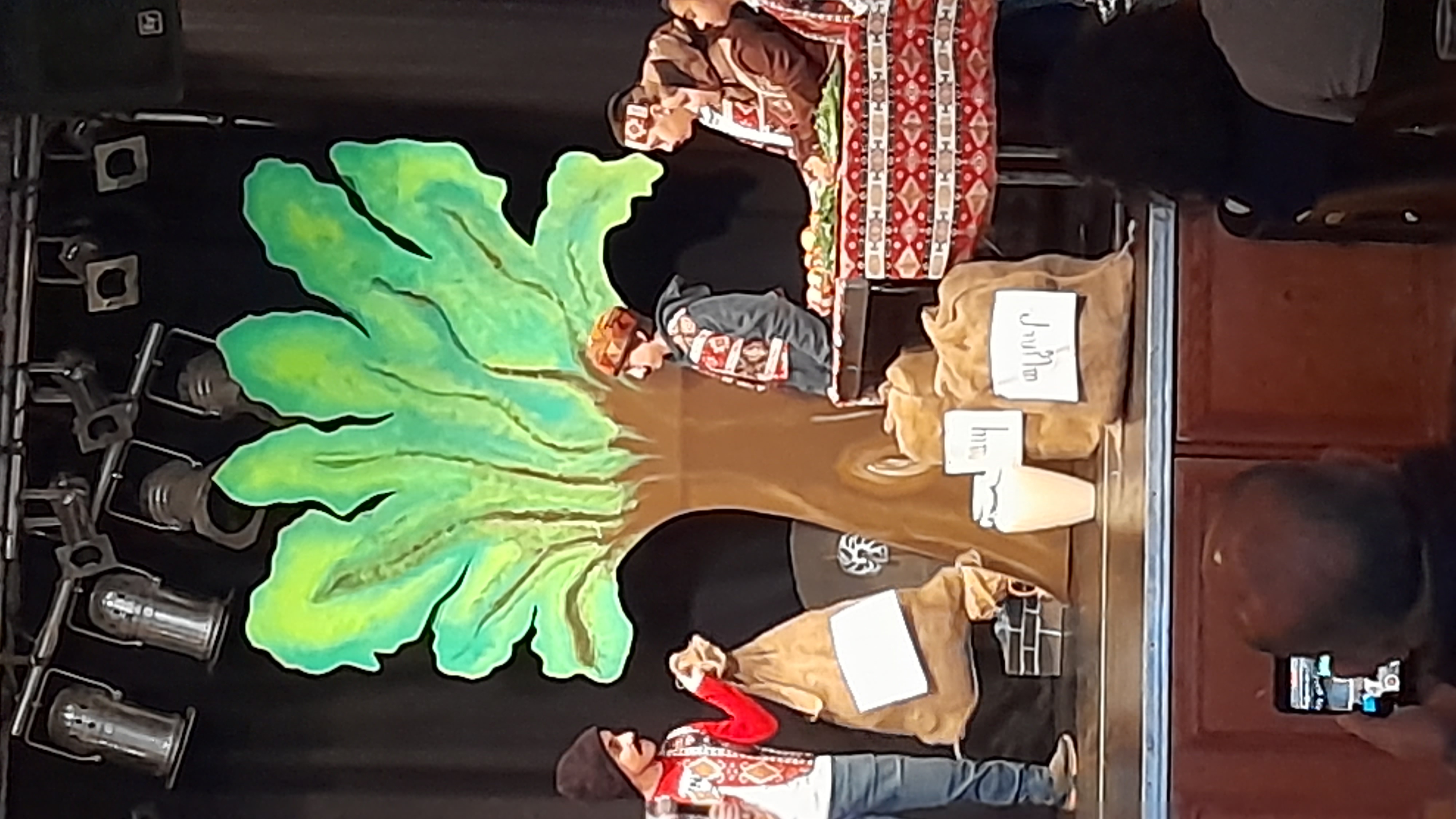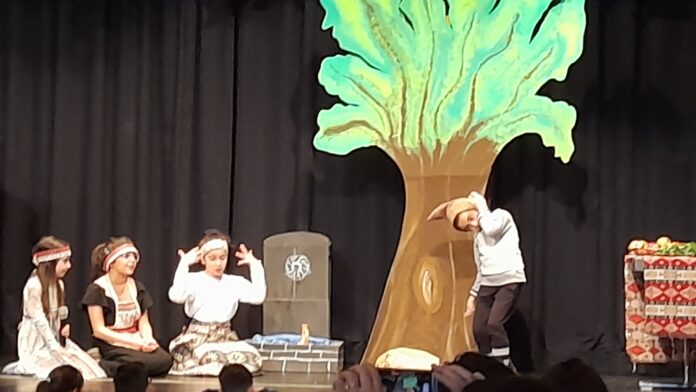WIESBADEN, Germany — After two years of pandemic restrictions, Germans were able to resume Carnival celebrations again this February. Carnival here is an age-old tradition, especially in the Catholic areas of Bavaria and the Rhineland. Large crowds gather in bright costumes and high spirits for festive sessions characterized by political cabaret and music. As the season comes to a close just before the beginning of Lent, cities like Cologne and Mainz host festive parades, again featuring huge, politically satirical floats, marching bands and costumed jesters.
This year on February 25, more than 80 residents of Hesse, predominantly Armenians, came together for a festive gathering marking the end of the carnival season. The event was organized by the Wiesbaden Demokratisches Volks- und Kulturzentrum (DVK), a social and cultural organization dedicated to promoting Armenian-German understanding and integration, in a spirit of peace, equality, and democracy. In addition to language instruction, it organizes cultural activities in theater, choral music, folk dancing, and sports. Founded in 1976 in Wiesbaden, the association has been expanding its activities over the past few years. Its Saturday and Sunday school, which offers free instruction supported by the Diaspora office in Yerevan, has recently welcomed Armenian children from Ukraine.

It was not political cabaret, but children’s theater that was featured in the day’s festivities, held in the group’s social center. On the program were short plays based on works by Hovhaness Tumanyan, Armenia’s beloved author of fables and fairy tales. This year marks the centenary of his death, and Germans now have the opportunity to read some of his works, thanks to a new translation by Agapi Mkrtchian, an Armenian author and teacher living in Wiesbaden. Host Karen Gharslyan, chairman of the DVK, welcomed the well-known writer, who briefly presented the beautifully illustrated volume.
Then the children brought his fables to life, by acting out three pieces on the stage. The performance represented the results of their work on a project founded by the DVK in October 2021, called the KOMITAS Educational Institution (Կոմիտաս հայկական կրթօջախ). The idea was to promote knowledge of the Armenian language and culture in Wiesbaden and the region, through cultural events as well as local excursions with groups of children.
On a brightly decorated stage, with props and scenery made by the group’s members, the children, starting with the youngest and proceeding to the older ones, delivered lively renditions of “Grandpa and the Turnip,” under the direction of teacher Ofelya Abrahamyan, “The Barekendan,” and “The Death of Kikos,” directed by teacher Dr. Anahit Hovsepian. Displaying remarkable stage-presence, the children acted out the miniature dramas with theatrical gestures and confidently delivered their lines from memory. Parents and guests captured the performance on film and, as the youngsters took their bows, the audience cheered.
Members of the organization had prepared a sumptuous buffet of Armenian delicacies, and wine was offered by the Aroma Aura vineyards (https://www.facebook.com/Aromaauraweine/). Vintner Garnik Harunyan founded the family enterprise in 2019, with the aim of combining European and Armenian wine-growing traditions to produce unique, high-quality wines. Part of the proceeds from wine sales will go to the Society for Orphaned Armenian Relief (SOAR https://www.soar-us.org/).








